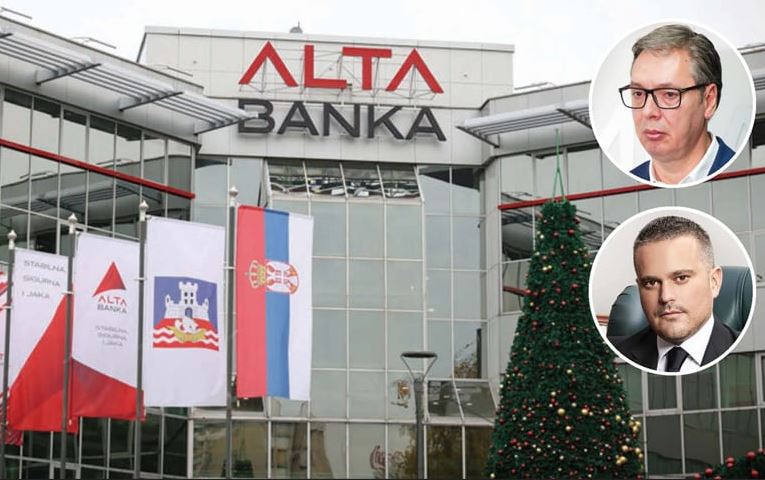An opposition lawmaker in North Macedonia accused ethnic Albanian leader Ali Ahmeti and his Democratic Union for Integration (DUI) of “selling patriotism for money” after his family sold shares in a Belgrade-based bank linked to Serbian President Aleksandar Vucic’s circle.
Saranda Imeri Stafai, an MP from the ruling VLEN coalition, said the deal exposed corruption, money laundering and ties with Belgrade behind DUI’s nationalist rhetoric. She urged ethnic Albanians “to know the truth” and stop “living in lies.”
One of the VLEN’s leaders Bilall Kasami alleged on Saturday that Ahmeti’s inner circle made financial arrangements with Serbia’s Alta Banka, which critics say is close to Vucic’s government. In a Facebook post, Kasami said he had presented evidence showing that the father of Ahmeti’s daughter-in-law had sold thousands of shares in his company, AS Senjak, to the bank.
“While they publicly spoke of patriotism and accused us, they were secretly making deals with Serbs and opening the door for Belgrade,” Kasami wrote. He added it was time to “expose this hypocrisy and manipulation” and vowed to prove DUI’s links to the Serbian World concept, a term used to describe Belgrade’s regional ambitions.
The sale of shares in Alta Banka, formerly Jubmes Banka, has stirred reactions among ethnic Albanian parties in North Macedonia. Founded in 1979, the bank was renamed in 2020 after being taken over by Alta Pay Group, owned by Serbian businessman Davor Macura. With assets exceeding 121 billion dinars ($1.1 billion) and a 2024 profit of 1.6 billion dinars, Alta Banka ranks 12th in Serbia’s banking sector with a market share of nearly 2%.
The bank has rapidly expanded through utility payment services and other deals, fueling speculation of state backing. It also sought to enter North Macedonia by offering about 23 million euros ($25 million) to acquire Stopanska Banka Bitola. The country’s Securities Commission approved the process, but it was halted in August due to changes in the buyer’s structure.
Critics say Alta Banka’s growth reflects political influence from Vucic’s government and may carry geopolitical implications. Supporters argue it is a modern institution that boosts competition in the financial market.



